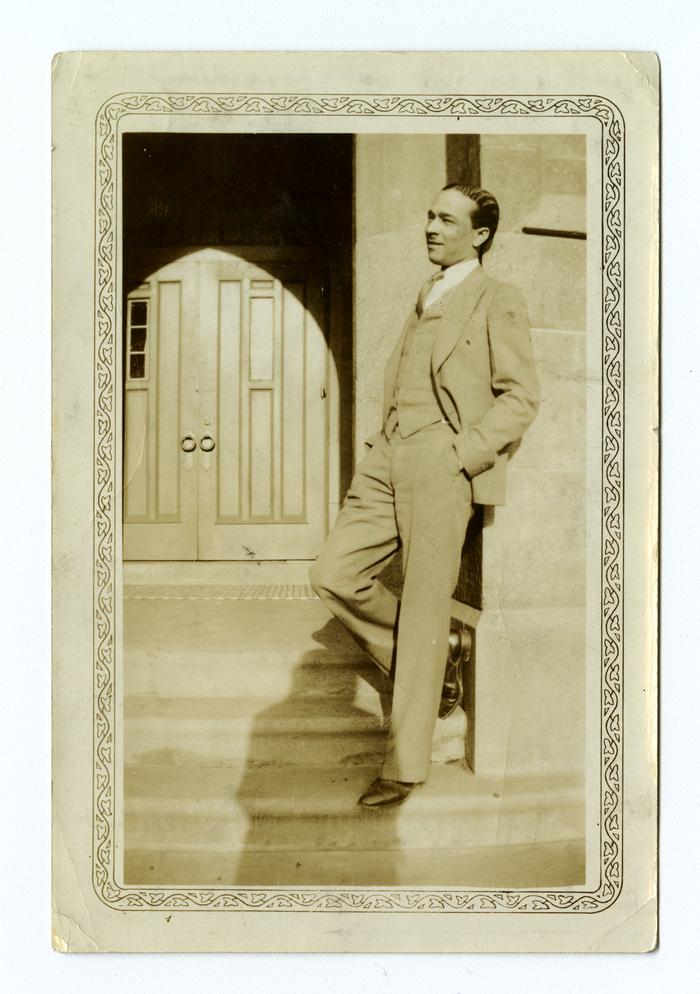Bernice Dutrieuille Shelton
Entity Type:
IndividualIdentifier:
ENT.000003799Biography:
Bernice Dutrieuille was born in Philadelphia in 1903. She was the daughter of Albert E. Dutrieuille, owner of a prominent African American catering firm in the city. Her mother was Florence Baptiste, whose family operated another catering firm. The family lived in an integrated middle class neighborhood on 19th Street, and attended St. Joseph's Catholic Church.Dutrieuille graduated from Girls' High ca. 1918. She became active in the YWCA. In this period she continued to live with her parents, and appears to have attended the University of Pennsylvania for a time. She worked as an assistant secretary-cashier for the National Benefit Life Insurance Company in 1927-1928.
She met John Howe, a sports editor for the Philadelphia Tribune, in 1927. He introduced her to newspaper writing through sports coverage, and arranged for several of her articles to appear in the Tribune. In this period a friend of Dutrieuille's from the YWCA was contacted by the managing editor of the Philadelphia office of the Pittsburgh Courier, who was in search of someone to produce society notes and some news. This friend, Emilie Brown, suggested Bernice for the task, and Dutrieuille began her newspaper career covering local college athletics (particularly basketball), fraternity and sorority events, and general social news. By 1929 she was working for both the Afro and the Courier, and at about this time also began contributing a column to the Norfolk Journal and Guide ("Quaker Quips"). John Howe died in 1928 of a heart condition, but Dutrieuille continued in newspaper work as a regular contributor of columns on social events to the Courier, the Afro-American, and the Philadelphia Tribune. In addition to her regular columns, she occasionally covered criminal trials for the Afro-American.
Dutrieuille took a Civil Service Examination ca. 1930, receiving high marks. She married George Alexander Shelton in 1931; the couple was separated by 1937 but apparently never officially divorced. After her son Peter was born in 1936, she cut back on her newspaper work and eventually stopped for some time; she worked for the government while raising her son. She explained this in later years by stating that she needed a better and more stable income while Peter was in school, as she sent him to Catholic private schools. After Peter graduated from St. Thomas More High School, she returned to newspaper writing as a social columnist for the Afro-American. She continued writing for the paper until approximately 1979.
Throughout her career Shelton remained interested in the difficulties of the African American press in publication and competition with white papers for circulation. She was particularly concerned with the place of African American women in the field of journalism in general, and in the black press in particular. While she did not express a belief that her work in the "women's page ghetto" was less important than political or other coverage, she was convinced that her abilities were not fully utilized by any of the newspapers for which she wrote. She did write occasional news stories, and included general sociopolitical commentary in her columns, particularly in the 1970s, but wished to do more.
Like other African American female journalists, Shelton supported herself with multiple jobs in addition to newspaper writing, including serving as a "local addresser," distributing samples for the Rome Cosmetic Company. In the 1930s and 1940s she worked several stints as a secretary, and in the late 1960s her government employment included serving as assistant forelady for the Philadelphia Common Pleas Court. She attempted to combine social service with paid employment wherever possible, as when she took a job in 1931 with the Philadelphia Welfare Foundation to design a publicity campaign for the United Campaign fund drive.
Deeply committed to social reform, Shelton was active in a number of organizations, including the Allied Roosevelt Clubs of Philadelphia (for which she served as secretary in 1932), the Women's International League for Peace and Freedom, and the Business and Professional Women's Club of Philadelphia. She was active in the YWCA throughout her life, serving on the Committee of Management in 1935 and on various committees thereafter. She was a founding member of several Philadelphia women's social clubs including the Girl Friends, and the Gay Northeasterners, with whom she traveled to Spain and elsewhere during the 1970s. Shelton never officially retired, continuing to write for the Afro-American until at least 1979.
Shelton died in 1983.

Related Object: Bernice Dutrieuille Shelton photographs, 1927